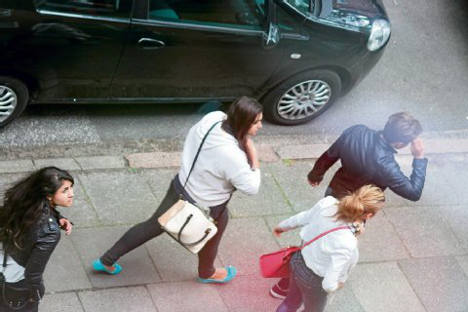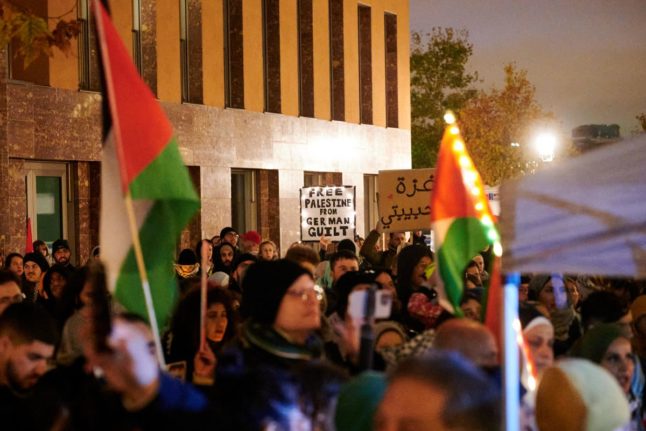By outward appearances they look like a perfectly normal group of female friends in their early twenties, sharing a care-free joke as they ride the bus or stroll down the street. They're well-dressed, done up in make-up and each of them is carrying a big, spacious handbag.
But pictures released by police of three young women show a band of alleged criminals who police suspect have been attempting daring break-ins in the wealthy port city.
The three women can be seen in three different pictures, taken on three separate occasions as passersby reported seeing them breaking into houses in June.
The young Hamburgers' alleged crime spree appears to have begun on June 4th.
A neighbour came to the rescue as the women tried to break the lock on a door in the Neugraben-Fischbeck neighbourhood. The women fled but the civic-minded neighbour managed to snap a photo of them as they went.

The trio, in the company of a man, on June 4th. Photo: Hamburg Police
A week later the group were foiled again as they were forcing their way through the window of a house in the Sinsdorf district. This time a burglar alarm alerted a pedestrian to their criminal act.
The young women didn't wait long before they were back to their law-breaking ways. But on June 16th they were once again out of luck.
Attentive neighbours heard strange sounds in their hallway and sent the young women packing as they attempted to break the lock on a house in Barmbeck.
A police spokesperson could not confirm to The Local whether the women may have been linked to further crimes in the intervening period or whether they have decided to hang up their handbags for good.
But he did say that it is more common than one might think for woman to be involved in break-ins.
“They are breaking into empty family homes and, in terms of the strength required to break in, when you have the right equipment, it is not important if you are a man or a woman,” the spokesperson said.
Police “regularly” deal with reports of break-ins by women, he confirmed.



 Please whitelist us to continue reading.
Please whitelist us to continue reading.
Member comments